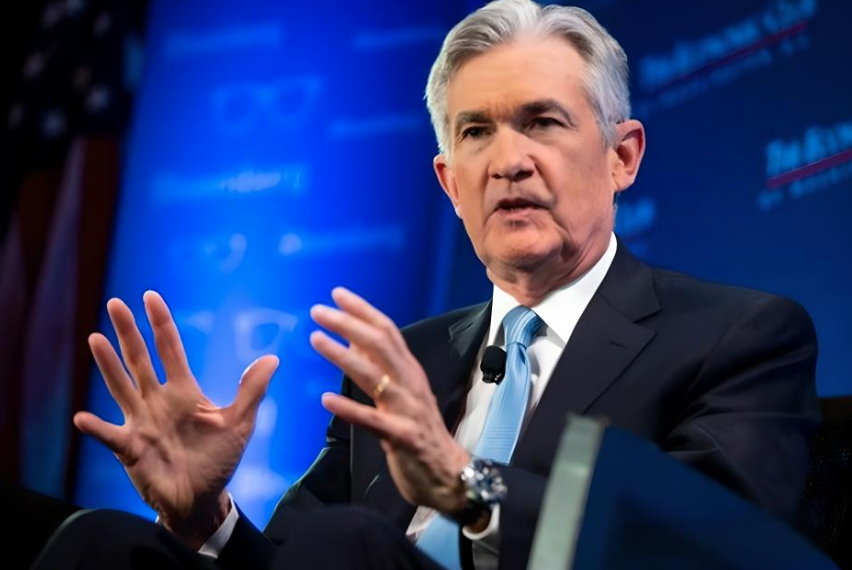
On December 1st, the three major US stock indexes collectively closed higher, all recording their fifth consecutive week of gains; Both the Dow Jones and the S&P 500 have set their highest closing records for the year. As of the close, the Dow Jones Industrial Average rose 0.82%, the S&P 500 index rose 0.59%, and the Nasdaq rose 0.55%. On that day, Federal Reserve Chairman Powell attempted to pour cold water on the market's expectation of interest rate cuts, but the effect was not significant. Powell stated that if it is necessary to reduce inflation, the Federal Reserve will raise interest rates again, and it is too early to speculate when policy may be relaxed. The Federal Reserve will hold its last interest rate meeting of the year from December 12th to 13th, and the market generally expects the Fed to maintain interest rates unchanged for three consecutive times.
01 | Powell: It's too early to talk about interest rate cuts
During his speech at Spearman College in Atlanta, Powell stated that decision-makers will be cautious about future monetary policy decisions, and if it is necessary to reduce inflation, the Federal Reserve will raise interest rates again. It is too early to speculate when policy may be relaxed. Powell pointed out that "so far, the Federal Reserve has been cautiously advancing as the risks of insufficient and excessive tightening are becoming more balanced. It is still too early to conclude that our position has reached enough restrictive or speculate on when policy may be loose." He further added, "If it is appropriate, we are prepared to further tighten policy." After Powell's speech, Renowned journalist Nick, known as the "New Federal Reserve News Agency"
Timiraos shared his latest assessment in an article that he believes the Federal Reserve has ended interest rate hikes, but officials are unwilling to say so. Spartan
Peter, Chief Market Analyst at Capital Securities
Cardillo commented, "Powell used the word 'balance' and sent a message that the Federal Reserve will not change its wording, but things are moving in the direction they want and they will not raise interest rates again. They have ended raising interest rates, and that's what the market thinks." The Federal Reserve will hold its last interest rate meeting of the year from December 12th to 13th, and the market generally expects the Fed to maintain interest rates unchanged for three consecutive times. Wall Street believes that the current cycle of interest rate hikes by the Federal Reserve has come to an end, and some people are optimistic that policymakers will cut interest rates in the first half of next year, which has supported the significant rise in the US stock market in November.
02 | Powell: Core inflation is still too high. Powell pointed out that the current inflation level is still far above the Federal Reserve's target of 2%. He cited data stating that the annualized growth rate of core inflation in the past six months was 2.5%. Although the low inflation data in the past few months is promising, achieving the target level of 2% means that this progress must continue. He said that the Federal Reserve will stick to its promise to maintain restrictive interest rates until inflation is on track to fall back towards 2%. The recent progress in core inflation must continue. When it comes to Congress, Powell said that Federal Reserve decision-makers always face pressure from members of Congress to support one fiscal policy or another, but he told them that it is crucial for the Fed not to do so. He stated that in order to ensure its independence, the Federal Reserve must stay away from politics. Powell also said that to ensure that lawmakers understand what the Federal Reserve is doing, he and his colleagues are spending more time in Congress now than before. Ultimately, the mandate is established by Congress. Powell did not mention the recent surge in stocks and bonds in his speech, but instead commented on the financial environment over a longer period of time. He said, "So far, the normalization of supply and demand has played a crucial role in reducing inflation, and the significant tightening of monetary policy and the overall financial environment in the past two years has played the same role." When asked how to address the high volatility of inflation, Powell said that the Federal Reserve's bottom line is to restore price stability, which is the cornerstone of the economy. The Fed's tools only include interest rates and balance sheets.
03 | After the Fed policymakers acknowledged that the current round of interest rate increase cycle is likely to end Powell's speech on Friday, the trend of US treasury bond bonds is diametrically opposite to that on Thursday, with prices rebounding in the session and yields diving. After breaking through 4.30%, the 10-year US Treasury yield hit a new daily low, giving up most of Thursday's gains. The two-year US Treasury yield fell below 4.60%, breaking a five month low, and the intraday decline expanded to more than 10 basis points. BMO
Capital
In a recent report, strategists from Markets pointed out that the excellent performance of treasury bond bonds in November not only reflected the progress made by the Federal Reserve in restoring price stability and the balance between supply and demand in the labor market, but also showed that the Federal Reserve's policymakers recognized that the current cycle of interest rate increase was likely to end. Investors have quickly started discussing when the Federal Reserve will first cut interest rates, while the statements of Federal Reserve officials are still in opposition, trying to convey the message that rate cuts will not be on the agenda soon. END





